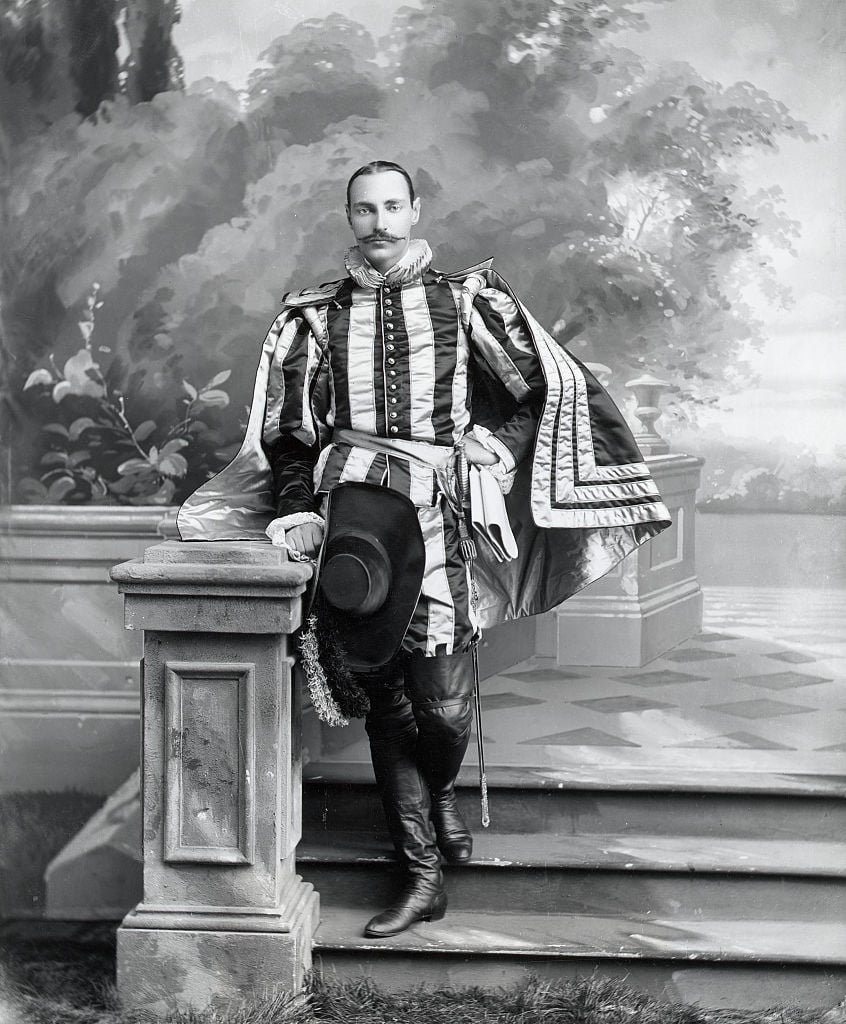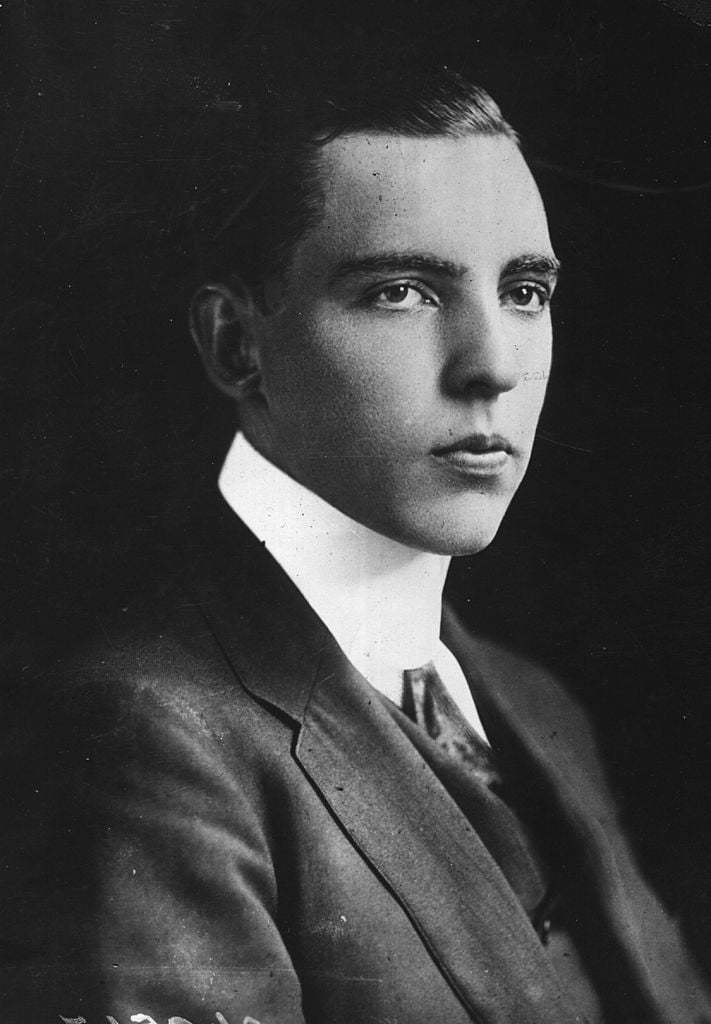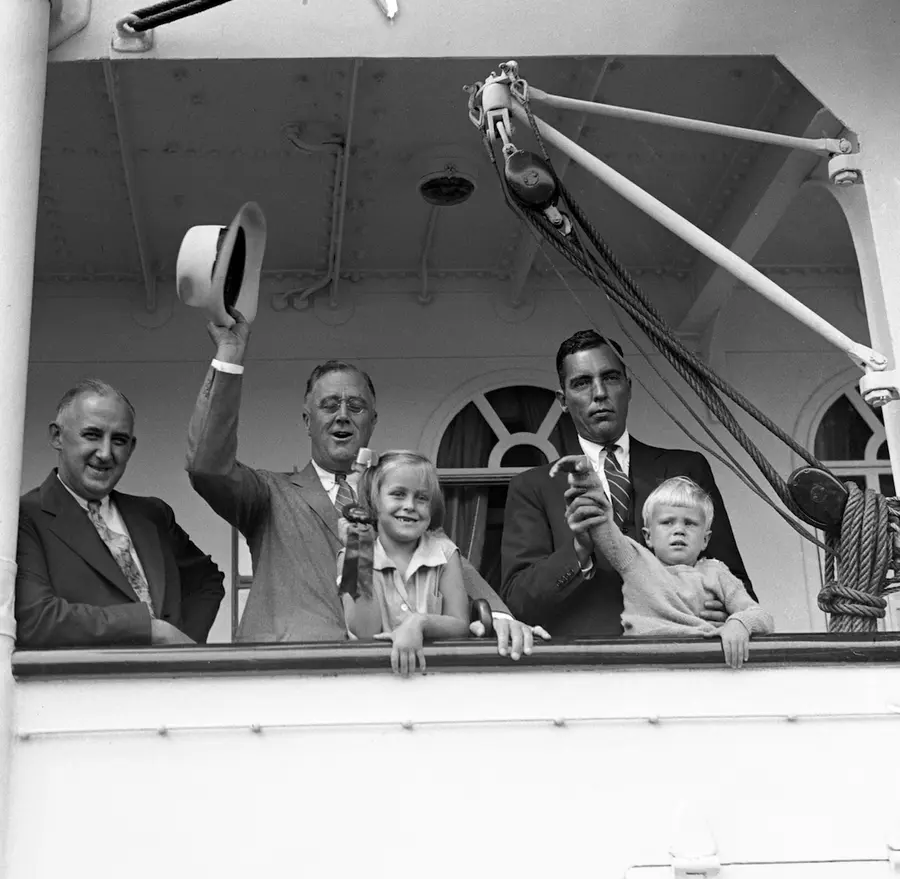Vincent Astor was just 20 years old and an undergraduate at Harvard when his world changed forever. In April 1912, his father, John Jacob Astor IV, the richest man on board the Titanic, perished when the great ship went down in the North Atlantic. Vincent's stepmother, Madeleine, survived, but John Jacob's body was pulled from the icy waters days later. Among his recovered possessions was a gold pocket watch that had been secured by his life jacket. That watch was handed to Vincent, and he carried it with him for the rest of his life — a daily reminder of the moment he inherited both unimaginable wealth and the heavy responsibility that came with it.
The Astor fortune was already legendary. It had been built nearly a century earlier by John Jacob Astor I, a German immigrant who made his first million in the fur trade and then multiplied it many times over by buying up vast tracts of Manhattan real estate. By the time of his death in 1848, the first Astor's $20 million fortune represented an enormous share of America's GDP, the modern equivalent of roughly $121 billion. That staggering wealth cemented the Astors as New York's original real estate dynasty and one of the most powerful families in the country.
John Jacob Astor IV carried that legacy into the twentieth century. He built the St. Regis Hotel, lived a life of privilege and prominence, and presided over an estate worth $85 million — equal to around $2.3 billion today. When he died aboard the Titanic, Vincent, his only son, suddenly became one of the wealthiest young men in the world. The shy Harvard student was thrust into a role for which he had little preparation: managing a vast real estate empire, upholding a family name long associated with both immense fortune and public criticism, and deciding what kind of Astor he would become.
Inheriting a Massive Fortune
Vincent's inheritance was staggering: $69 million in cash (around $1.9 billion today), the St. Regis Hotel, and vast swaths of New York City real estate. Practically overnight, he became one of the wealthiest men alive. He had been close to his father, who doted on him, and the sudden responsibility weighed heavily. Perhaps overwhelmed, Vincent soon sold the St. Regis to Benjamin Duke, though he later regained it in 1935 and personally oversaw its modernization.
Though shy and reserved, Vincent moved easily within the world of high society. He was close to Franklin D. Roosevelt, who later became president, and often offered informal advice. That friendship influenced some of Vincent's civic-minded ambitions and tied him to public life in a way his father had not been.

John Jacob Astor IV (via Getty).
Building His Own Empire
Real estate remained the backbone of his fortune. Vincent owned multiple residences, including a sprawling townhouse that stretched from East 80th to 79th Street and a 23-room penthouse at 120 East End Avenue. More importantly, he began reshaping entire neighborhoods. In Manhattan, he converted rows of old brownstones into apartments for young professionals and artists. On the Lower East Side, he built affordable housing for working immigrant families.
These projects weren't just profitable ventures. Vincent deliberately moved away from the Astor family's reputation for slum housing. Over time, he sold off many of those holdings and reinvested in projects with playgrounds, community spaces, and youth centers. He believed his wealth carried an obligation — a view shaped partly by his own difficult upbringing with a cold and distant mother.

Vincent Astor (Photo by Topical Press Agency/Getty Images)
Philanthropy
Determined to transform his family's image, Vincent invested millions into causes that directly improved New Yorkers' lives. He built playgrounds in Harlem and the Bronx, funded the American Red Cross, and supported youth programs at New York Hospital. He donated land, financed children's projects, and helped expand opportunities for underprivileged communities.
In 1948, he established the Vincent Astor Foundation with the guiding motto "the alleviation of human misery." The foundation became the centerpiece of his philanthropic vision, ensuring that much of his fortune would eventually flow to public causes.
Other Endeavors
Beyond business and philanthropy, Vincent loved the sea. He commissioned a new yacht, the Nourmahal, a 264-foot vessel with 11 staterooms and a crew of 42, which he used for global voyages. He donated tortoises and other rare animals collected on these trips to the Bronx Zoo. During World War II, he turned the yacht over to the U.S. Navy for military use.
Vincent also made a mark in publishing. In 1937 he merged Today magazine with the failing Newsweek, creating a rival to Time. As chairman, he guided the magazine until his death.

FDR with his grandchildren and Vincent Astor (right).(Photo by Bettmann Archive/Getty Images)
Final Years and Legacy
In 1953, Vincent married Brooke Astor, his third wife, who would go on to become one of the most celebrated philanthropists of her generation. Together, they cemented the Astor legacy not as slumlords but as benefactors.
Vincent died of a heart attack in 1959 at the age of 67. In a twist of fate, his first heart attack occurred years earlier as he walked into a theater to watch "A Night to Remember," a film about the Titanic disaster. At his death, his fortune had grown to about $200 million (around $2 billion today). Brooke inherited $67 million, much of which she gave to charity.
Over the following decades, through both Vincent's foundation and Brooke's tireless philanthropy, billions of today's dollars were poured into New York institutions — from the library and zoo to neighborhood literacy programs and parks. By the time Brooke died in 2007, the Astor fortune had largely been transformed into public good.
From an heir burdened by tragedy to a benefactor determined to right his family's wrongs, Vincent Astor's life was defined by the Titanic disaster — and by his effort to ensure that his inheritance ultimately uplifted others.
/2024/05/watch.jpg)
/2017/10/thumb.jpg)
/2013/03/GettyImages-477624067.jpg)
/2014/11/thun.jpg)
/2020/07/Doris-Duke.png)
/2017/08/thumb-3.jpg)
/2009/09/Brad-Pitt.jpg)
/2020/04/Megan-Fox.jpg)
/2009/11/George-Clooney.jpg)
/2020/01/lopez3.jpg)
/2019/10/denzel-washington-1.jpg)
/2019/04/rr.jpg)
/2009/09/Jennifer-Aniston.jpg)
/2020/02/Angelina-Jolie.png)
/2009/09/Cristiano-Ronaldo.jpg)
:strip_exif()/2009/09/P-Diddy.jpg)
/2018/03/GettyImages-821622848.jpg)
/2017/02/GettyImages-528215436.jpg)
/2020/06/taylor.png)
/2019/11/GettyImages-1094653148.jpg)
:strip_exif()/2015/09/GettyImages-476575299.jpg)